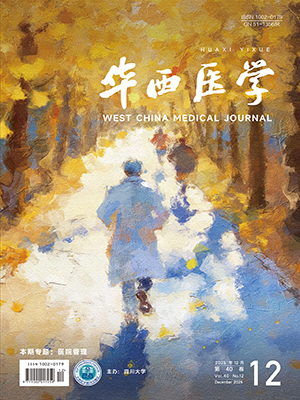| 1. |
Burnett E. Outcome competences for practitioners in infection prevention and control. J Infect Prev, 2011, 12(2): 67-90.
|
| 2. |
European Centre for Disease Prevention and Control. Core competencies for infection control and hospital hygiene professionals in the European Union. (2013-03-15)[2017-12-01]. http://ecdc.europa.eu/en/publications/publications/infection-control-core-competencies.pdf.
|
| 3. |
Goldrick BA. The Certification Board of Infection Control and Epidemiology white paper: the value of certification for infection control professionals. Am J Infect Control, 2007, 35(3): 150-156.
|
| 4. |
CBIC. Candidate handbook. Milwaukee (WI): CBIC Executive Office, 2009.
|
| 5. |
Feltovich F, Fabrey LJ. The current practice of infection prevention as demonstrated by the practice analysis survey of the Certification Board of Infection Control and Epidemiology, Inc. Am J Infect Control, 2010, 38(10): 784-788.
|
| 6. |
Murphy DM, Hanchett M, Olmsted RN, et al. Competency in infection prevention: a conceptual approach to guide current and future practice. Am J Infect Control, 2012, 40(4): 296-303.
|
| 7. |
Burnett E. Development of the competency framework: our journey. J Infect Prev, 2011, 12(2): 50-52.
|
| 8. |
Burnett E, Curran E, Loveday HP, et al. The outcome competency framework for practitioners in infection prevention and control: use of the outcome logic model for evaluation. J Infect Prev, 2014, 15(1): 14-21.
|
| 9. |
Brusaferro S, Cookson B, Kalenic S, et al. Training infection control and hospital hygiene professionals in Europe, 2010: agreed core competencies among 33 European countries. Euro Surveill, 2014, 19(49): 45-54.
|
| 10. |
Zingg W, Mutters NT, Harbarth S, et al. Education in infection control: a need for European certification. Clin Microbiol Infect, 2015, 21(12): 1052-1056.
|
| 11. |
Coalition of National Nursing Organisations. National Nurse Credentialing Framework, 2011[2016-03-09]. http://www.conno. org.au/images/stories/PDF/Meetings/Aug11/conno_credentialling_framework_final.pdf.
|
| 12. |
Australasian College of Infection Prevention and Control. Credentialled Infection Control Professional (CICP) Application Package, 2014[2016-03-09]. https://www.acipc.org.au/CMS/ Uploads/file/ACIPC_CredPackage_Brochure_20131216-2.pdf.
|
| 13. |
Macbeth D, Hall L, Halton K, et al. Credentialing of Australian and New Zealand infection control professionals: an exploratory study. Am J Infect Control, 2016, 44(8): 886-891.
|
| 14. |
The Hong Kong Academy of Nursing Limited. The Hong Kong College of Medical Nursing. [2017-12-09] http://www.hkan.hk/ main/en/members/institutional-members/hong-kong-college-of-medical-nursing.
|
| 15. |
Pogorzelska M, Stone PW, Larson EL. Certification in infection control matters: Impact of infection control department characteristics and policies on rates of multidrug-resistant infections. Am J Infect Control, 2012, 40(2): 96-101.
|
| 16. |
Saint S, Greene MT, Olmsted RN, et al. Perceived strength of evidence supporting practices to prevent health care-associated infection: results from a National survey of infection prevention personnel. Am J Infect Control, 2013, 41(2): 100-106.
|




